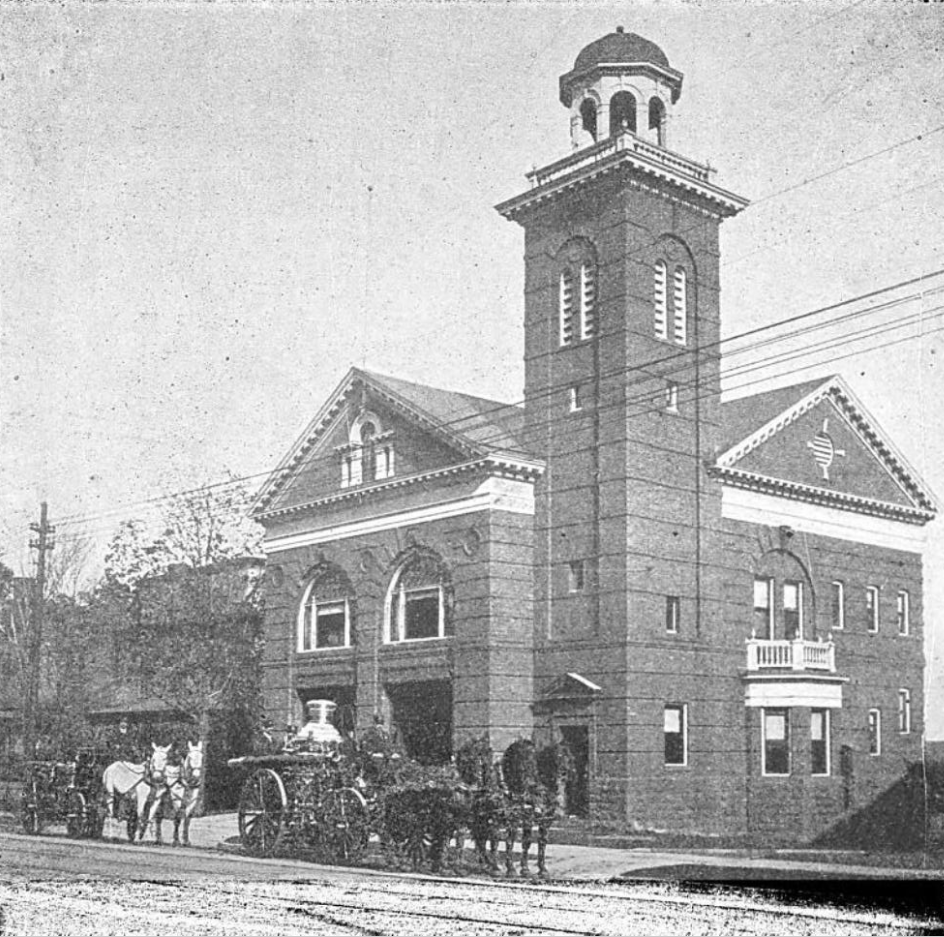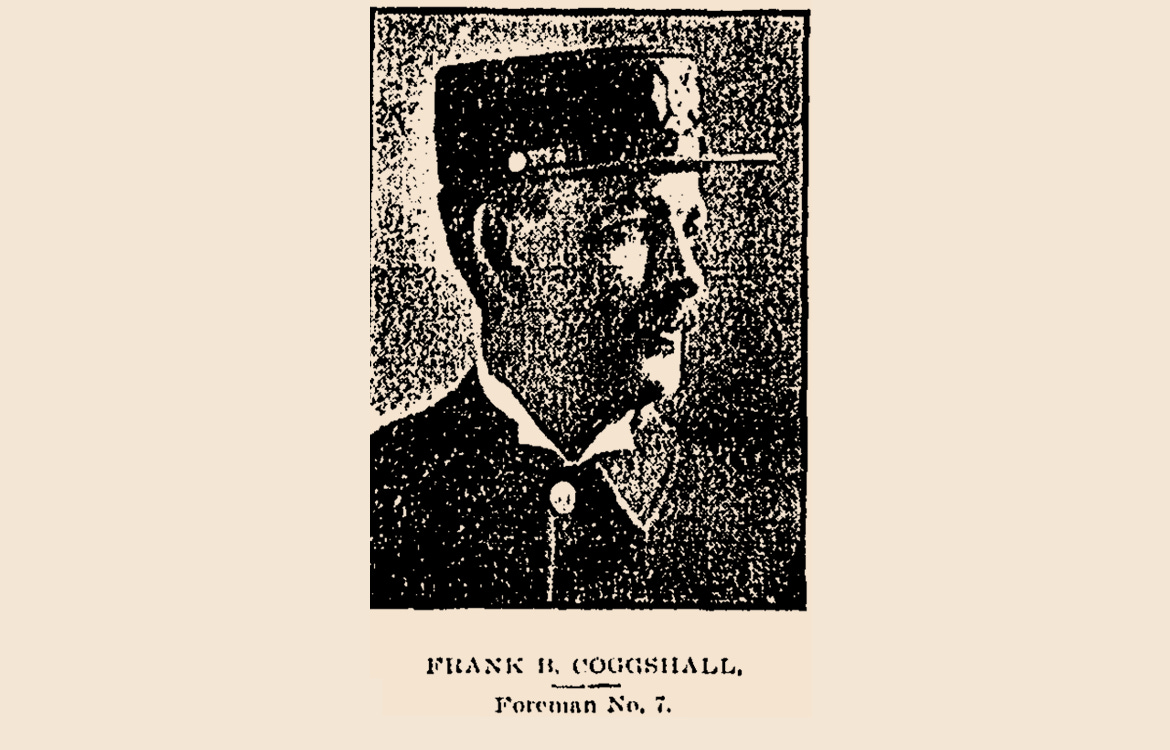
Police Raid an Illegal Liquor Business
In my latest video on YouTube, I talk about the buildings that once stood on Ford Street, between Asylum and Pearl Streets across from Bushnell Park. Now a parking lot, from 1954 until it was demolished in 1990, this block was the site of the Statler-Hilton Hotel. Before the hotel, going back to the 1850s there were many buildings here. At the start of the twentieth century, many black families lived in these buildings, which also had rooms occupied by Black social clubs. In the video, I mention that, on May 30, 1902, a dozen Black waiters met at the Home Circle Club on Ford Street and formed Hartford’s first Black labor union, the Colored Waiters and Cooks Local 359.
Four years later, the club’s character had changed quite a bit. The Hartford Courant reported on March 18, 1906, that on the previous morning, there was a Sunday raid on the club, “where the police say a lively illegal liquor business was being carried on.” Police found “fifteen cases of beer and a quantity of whiskey” on the premises and arrested George Smith, the alleged proprietor, for violating the liquor license law. They also held William Moseley, the club’s steward, “as a witness against him.” The Courant article notes that,
Smith produced incorporation papers of the “Home Circle Club,” which show that the club was incorporated to “promote social intercourse and the intellectual betterment” of its members. None of the members whose names appear on the charter is in town at present and Smith is said to have bought the charter from the former owner to carry on an illegal liquor business.
Several days later, the police’s net had widened. On March 22, the Courant reported that the previous day, John L. Wheldin, who had a barbershop on Pearl Street, was fined $50 for keeping liquor with intent to sell at the club. The cases of Smith and another man, Richard M. Shields, who was also charged with violating the liquor license laws, had been continued to that morning.

Police arrest a Respected Fireman for Illegal Gambling
The same day as the raid on the Home Circle Club, the police also raided a barn at the rear of 184 Barbour Street [this would have been in the vicinity of where Earle Street intersects Barbour Street today], where the police said men of the neighborhood had been spending their Sundays gambling in a poolroom kept by Frank B. Coggshall, who was a fireman, having joined the department in 1901. At the time, Coggshall was a “bunker” with Engine Company No. 7, which was located at what’s now the corner of Main Street and Sandford Street. Coggshall was arrested for keeping a gaming house. As the Courant described it the following day,
The raid on the alleged gambling place was made on a warrant issued as the result of numerous complaints from residents of the north end. The police for some time have received complaints that every Sunday gambling has been going on in the barn in the rear of No. 184 Barbour street, in a room which is fitted up and run as a poolroom by Coggshall. The raiders swept down on the place yesterday afternoon. When they entered the barn they found twelve men playing cards. No chips or money was in sight. Coggshall and the card players were taken to the station house, where all admitted that they were playing for money. Eight of them had been playing setback for 10 cents a corner and the other four were playing "hearts" for a penny a heart. A score was kept and the players settled after each game, they told the police.
Prosecuting Attorney Freeman said that the men found in the place would not be prosecuted and he refused to give out their names. They have been summoned as witnesses against Coggshall, who will be arraigned on the charge of keeping a gambling house. Prosecutor Freeman said that it was his object to break up the place and put a stop to the practice of Sunday gambling and he thought this would be accomplished by prosecuting Coggshall alone, without bringing charges against the men found in the place. Coggshall has the reputation of being an excellent fireman and he felt his arrest keenly.
Despite Freeman’s statement, eleven men were eventually charged and fined. As for Coggshall, he initially pled not guilty, but after requesting a continuance to consult a lawyer, he returned and changed his plea to guilty. As the Courant reported on March 22, 1906:
He said that he had opened a pool room at the place a few months ago and that he had kept it open Sundays. The chief, he said, fold him that there was objection to the place being kept open Sundays. He closed it for a few Sundays and then, he said, he got into the habit of going there with some of his friends to play cards and that the games might be more interesting small stakes were played for. He said that he received no profit from the games. Coggshall paid the fine and costs, a total of $56.92.
This incident certainly did not hinder Coggshall’s career in the fire department. Less than two months later, he was appointed foreman of Engine Company No. 7 and became it s captain two years later. When he retired in 1939 (in the wake of a new law that required retirement at age 65), he had been with the department for 39 years, rinsing to the rank of deputy chief and serving as drillmaster of the firemen’s training school and Fire Marshall, “recognized in the East as an expert in the causes of fires and their prevention.” He passed away in 1950.




